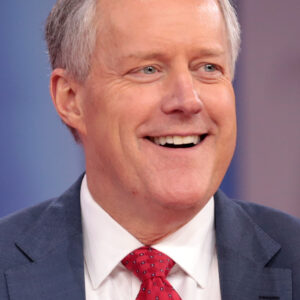The landscape of American politics is constantly evolving, and with the upcoming 2024 election, significant changes are expected. It is essential to understand the factors that are shaping the political landscape for the 2024 election to gain insights into the direction of American democracy. In this blog post, we will explore some of the key factors and their potential impact.
Demographic Shifts
One crucial factor that is shaping the political landscape for the 2024 election is demographic shifts. The United States is experiencing significant changes in its population, with increasing diversity. According to the Pew Research Center, the population is becoming more racially and ethnically diverse, and this shift is likely to impact the political preferences and priorities of different demographic groups.
For example, the Latino population is growing rapidly, and candidates will need to appeal to this group by addressing their concerns and offering policies that resonate with their values. African Americans, Asian Americans, and other minority groups will also play a significant role in shaping the political landscape. It will be essential for candidates to have inclusive platforms that address the needs and aspirations of these diverse communities.
Generational Change
The 2024 election will witness a new generation of voters coming of age. Millennials and Generation Z will have a larger presence in the electorate, and their political views and priorities may differ from previous generations. It is crucial for candidates to understand the concerns and issues that matter to these young voters.
Millennials and Generation Z are known to prioritize issues such as climate change, social justice, and affordable education. They are also more likely to support progressive policies and champion diversity and inclusivity. Candidates can engage and appeal to this new generation of voters by incorporating these concerns into their messaging and policy proposals.
Political Polarization
Political polarization has been on the rise in recent years, and it is expected to continue shaping the political landscape in 2024. Americans have become increasingly divided along ideological lines, which affects their voting behavior and party affiliations. This deep polarization presents a challenge for candidates and parties, as they must appeal to their respective bases while also finding a way to bridge the divide.
In a highly polarized environment, candidates must find common ground and emphasize unity and common goals. They should strive to bring Americans together by proposing policies that address the concerns of both liberals and conservatives. It is crucial to prioritize constructive discourse and avoid further deepening the divisions within the country.
Economic Issues
The state of the economy will play a significant role in the 2024 election. Job growth, income inequality, access to healthcare, and education are key economic issues that will influence voter decisions. As the country recovers from the economic consequences of the COVID-19 pandemic, candidates will need to offer concrete plans to stimulate economic growth, create jobs, and ensure economic equity.
Income inequality has been a persistent issue in American politics, and addressing this concern will be crucial for winning voter support. Candidates will also need to propose comprehensive plans for affordable healthcare and education to address the growing concerns of voters in these areas.
Technology and Social Media
The role of technology and social media in politics has grown significantly in recent years. Candidates and parties will continue to leverage these platforms to reach and engage with voters. Social media platforms allow candidates to communicate directly with their constituents, share their vision, and mobilize support.
However, the influence of technology and social media on the political landscape can be both positive and negative. On one hand, it provides a means for candidates to connect with a wider audience and amplify their message. On the other hand, it can also contribute to the spread of misinformation and the creation of echo chambers that reinforce polarization.
Climate Change and Environmental Concerns
Climate change and environmental issues have gained prominence in recent years and are expected to be significant factors in the 2024 election. The Pew Research Center reports that climate change is still seen as the top global threat. Candidates’ positions on climate change and their proposed policies to address it will likely influence voter decisions.
Voters are increasingly concerned about the environment and demand action from political leaders. Candidates will need to demonstrate a commitment to environmental sustainability, invest in renewable energy, and take concrete steps to mitigate the effects of climate change.
COVID-19 Pandemic
The ongoing COVID-19 pandemic has had a profound impact on American society and politics. The response to the pandemic, including vaccination efforts and economic recovery, will be significant issues in the 2024 election. Voters will assess how candidates have navigated the crisis, managed public health measures, and aided in economic recovery.
Candidates must demonstrate their competence in handling public health emergencies and offer robust plans to control the spread of the virus, ensure widespread vaccination, and rebuild the economy. The COVID-19 pandemic has highlighted the importance of strong leadership and effective crisis management, which will be crucial considerations for voters in 2024.
Conclusion
As we approach the 2024 election, it is important to recognize the changing landscape of American politics and the factors that are shaping it. Demographic shifts, generational change, political polarization, economic issues, technology and social media, climate change, and the COVID-19 pandemic are all significant drivers of political dynamics.
Candidates and parties must navigate these changes and effectively communicate their messages to voters. Understanding the concerns, priorities, and values of different demographic groups is essential for building successful campaigns. It is also essential for candidates to prioritize unity, constructive discourse, and finding common ground to bridge the political divide.
The political landscape is dynamic, and new factors may emerge as the 2024 election approaches. Candidates and parties must adapt to these changes and develop strategies that resonate with the evolving electorate. By acknowledging and addressing the key factors shaping American politics, we can ensure a more informed and engaged electorate and a vibrant democracy.
References:
- “The Changing Face of America: Demographic Projections and the Future of Diversity.” Pew Research Center. Available at: https://www.pewresearch.org/social-trends/2015/06/25/the-next-america/
- “The Generation Gap in American Politics.” Pew Research Center. Available at: https://www.pewresearch.org/politics/2018/03/01/the-generation-gap-in-american-politics/
- “Political Polarization in the American Public.” Pew Research Center. Available at: https://www.pewresearch.org/politics/2014/06/12/political-polarization-in-the-american-public/
- “Economic Issues Top the Public’s Policy Agenda for 2020.” Pew Research Center. Available at: https://www.pewresearch.org/politics/2020/01/09/economic-issues-top-the-publics-policy-agenda-for-2020/
- “Social Media and Political Engagement.” Pew Research Center. Available at: https://www.pewresearch.org/internet/2012/10/19/social-media-and-political-engagement/
- “Climate Change Still Seen as the Top Global Threat, but Cyberattacks a Rising Concern.” Pew Research Center. Available at: https://www.pewresearch.org/global/2021/02/10/climate-change-still-seen-as-the-top-global-threat-but-cyberattacks-a-rising-concern/
- “Public Highly Critical of State of Political Discourse in the U.S.” Pew Research Center. Available at: https://www.pewresearch.org/politics/2021/06/22/public-highly-critical-of-state-of-political-discourse-in-the-u-s/
- “COVID-19 and the 2020 Election.” Pew Research Center. Available at: https://www.pewresearch.org/politics/2020/10/06/covid-19-and-the-2020-election/






